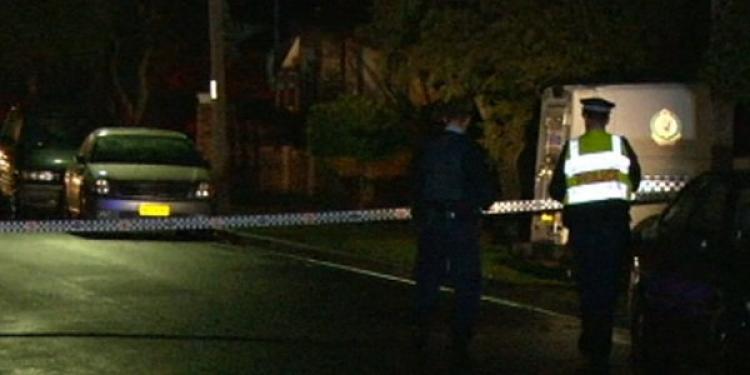The Rise and Fall of a Vietnamese Orphan Turned High Roller in Australia
Posted: December 12, 2014
Updated: October 6, 2017

The true story of a Vietnamese waiter, who gambled and money laundered , in Australian casinos, straight to his death.
Who in fact was Pete Tan Hoang? Some knew him as a modest Vietnamese waiter. In the casino circle he was best known as being a high roller. He progressively become a professional money launderer. He laundered over a billion dollars in Australia’s casinos and did this for over a decade. Hoang progressively aroused enough suspicion to capture the attention of the Australian authorities.
It became obvious that what appeared to be legal casino winnings were actually drug money. Then after a furtive affair with the Australian justice system in 2012, Hoang became the victim of his misdeeds; He was gunned down, with a shot to the head, in what appeared to be as mob-related shooting.
From humble beginnings
In the day time, Pete was probably just an ordinary guy, who seemed to be living off welfare and his meagre salary as a waiter. Pete was a co-tenant in a modest Bankstown apartment. He drove a vintage-type sedan. Nothing seemed more normal for this Vietnamese-born orphan living on a refugee visa.
• Waiter turned money launderer
• $1 billion laundered at Crown
• Death may involve ‘Grandfather’ of a Vietnamese mafia
At nights though, things got a little fairy-tale like. He was transformed into well-known high roller who gambled and laundered millions of dollars in Australia’s glitzy hotels. However his double life was publicly exposed when 36 year old Hoang was viciously murdered by a shot in the face while lurking in a dark suburban Sydney alley.
Then it all became public, and Australian gambling news reporters had a field day. It turned out that Hoang wasn’t just a known gambler at casinos. He actually money laundered for narcotic mobsters, gambling away millions over a ten-year period. Most of the gambling and money laundering took place in Australia’s biggest casino, the Crown Melbourne.
Hoang, born in Vietnam in 1997 became an orphan. Twenty years later he arrived on Aussie shores on a student’s visa. In order to stay in the country he applied for a student visa with an Indonesian passport showing his name to be Petrus Keyn Peten. Applying for refugee status, he changed his name to Minh Tan Nguyen and was granted Australian citizenship in 2001.
Pete Hoang, ‘person of interest’
By the time Hoang became a citizen, he was a regular figure in Australian poker rooms and casinos and was soon banned from Sydney’s casino, The Star. Then in In May 2012, not only was he banned again from the same casino but he was also banned from Jupiter’s Casino in Brisbane.
It became obvious by then that he was dealing with a very ‘high proportion of gambled funds” which had to “other people’s money at casinos under instructions” says Michael Purchas, head of was dubbed the ‘Operation Gordian’ by the Australian Crime Commission (ACC). Narcotics investigators started to consider him as a ’person of interest’.
Michael Purchas, who headed the Gordian operation, spent months observing Vietnamese-Australian criminals, including Hoang, who sold drugs and laundered the profits. Between 2005 and 2006 the ACC operation revealed that Hoang was good at eluding the police even though he was suspected of heroin and other illegal drug trafficking.
Only a handful of small group Vietnamese-Australians were arrested for laundering about $93 million in drug profits in a year. Later, it became obvious that Hoang was actually involved with several Vietnamese-Australian drug trafficking syndicates in Sydney and Melbourne.
Finally, in October 2012, he was arrested at the Crown Casino, as he tried to gamble an extravagant $1.5 million in cash on high stakes. It was later made known that Hoang had accumulated $75 million worth of chips at Crown in 12 years from 2000. This corresponded to around $225 million, or as much as $1 billion being laundered.
Murder linked to money laundering
Mick Willing, New South Wales Police homicide squad commander, proclaimed that it was highly probable that “Hoang’s background in drugs and Asian organized crime syndicates played a role in his death…We have certainly considered that he was involved in drug trafficking and moving money through casinos – [that] may have been a catalyst for his death”.
Aussie Law enforcement officials suggested that Hoang was indeed involved with Ong Ngoai, a Hong Kong-based crime group that dealt in global drug trafficking. It had an illicit network stretching from Asia, to North and South America, with an Australian connection.
Australian police also revealed that the Vietnamese narco-group also had links with 24 dozen drug syndicates. Investigators also said that Hoang’s ‘remarkable gambling patterns’ at the Crown Melbourne made the casino come under scrutiny.
Hoang gets royal treatment under the Crown
The casino seemed to approve of Hoang playing under four different names – Pete Hoang, James and John Ho and Patrick Lu. He was showered with perks and benefits ranging from business class flights from Sydney, a villa in the Crown Towers, free food and alcohol, to minimum $1 million buy-in, as well as a cut of gambling turnover, in the form of cash gifts, amounting to $100,000.
Although under Australian gambling laws, Crown had to reveal Hoang’s transactions to federal authorities; it all but refused to comment on these exclusive gifts. However Crown assured everyone that it was fully cooperating with state and federal law enforcement agencies concerning Mr. Hoang.










